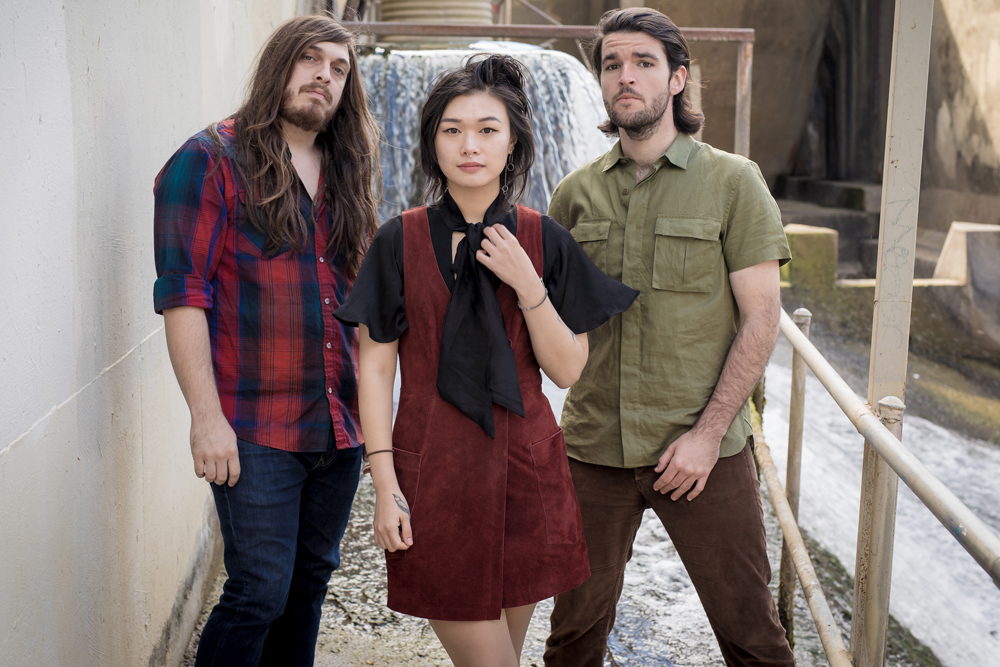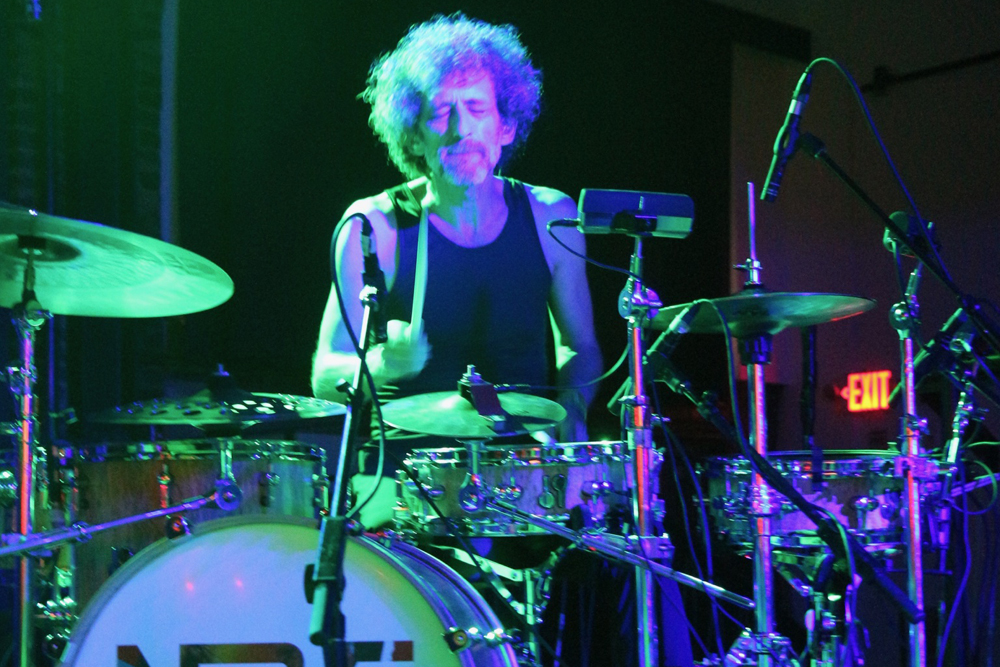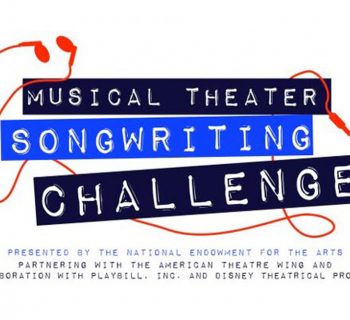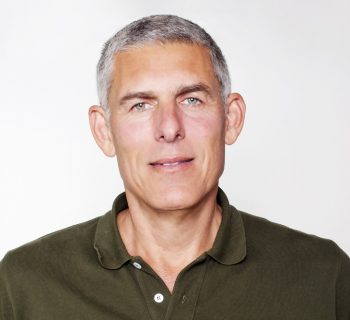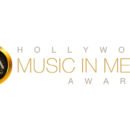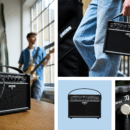A modern day soul man with camera-ready cool: With his 2015 debut, Coming Home, Leon Bridges echoing influences of ‘60s greats like Jackie Wilson, Sam Cooke and Arthur Alexander, appeared seemingly out of nowhere. Nominated for Best R&B Album at the 58th GRAMMY Awards in 2015, Coming Home also garnered a nomination in 2016 in the Best Music Video category for “River.” An electrifying performance on Saturday Night Live served as further introduction to a wide national audience.
Good Thing, released in 2018, proves that Bridges has no intention of being boxed in as a vintage artist. Tracked under the guidance of producers Niles City Sound, King Garbage and Nate Mercereau, executive producer Ricky Reed invited a team of collaborators to co-write with Bridges and his Texas crew, including heavyweight songwriters Justin Tranter, Teddy Geiger and Dan Wilson. A brilliant combination of Southern grit, stellar songs, imaginative arrangements and inventive production, Good Thing, which entered at #3 on the Billboard 200 chart, showcases Bridges’ astounding emotional range and genuine, confessional vocals.
For this exclusive interview, MC checked in with Bridges between one of his European tour dates.
Music Connection: We’re speaking to you in Aarhus, Denmark on a major European visit. How have the shows and the audiences been so far?
Leon Bridges: The tour’s been great. I incorporated some new band members. We’ve been focusing on our live performance, and I’ve been focusing on growing as a showman. The audiences have been great, definitely different from American crowds. It’s been interesting seeing what they react to here, but it’s a lot of energy.
MC: Are you using visual elements in your production?
Bridges: Our production is a little bit more stripped down than the North American tour we just had, because the venues are a little smaller. So we have to bring it with the music.
MC: Most of the songs on your latest full length, Good Thing, clock in between three and four minutes. Do you lengthen them drastically to adapt to a concert situation?
Bridges: Definitely. The live interpretation of the album is so different. On a song like “Lion” we have a crazy psychedelic intro. All of the songs have a different vibe.
MC: As we understand, for Good Thing you had already done extensive recording with your production team in Texas, but you wanted to up the game, correct?
Bridges: Yes, definitely. I stopped touring in the fall of 2016 and I did a lot of writing back home in Fort Worth. The sound of those recordings went from a ‘70s soul thing to an ‘80s and ‘90s R&B vibe. My producers and I felt like we hit a wall creatively, so we went out to L.A. to work with Ricky Reed. I was a little reluctant to do it at first.
MC: We’re big fans of Ricky and have interviewed and featured him on many memorable occasions at MC. He has shared with us that he doesn’t believe in overly directing artists. He is more interested in capturing their vision.
Bridges: I had never worked with any other producer, and the whole idea of collaborating on a writing level was different. But it worked out great. And I love Ricky’s approach to creating. Like you said, he didn’t try to impose his thing on me. It was collaborative.
MC: We understand that you and Ricky worked very much in the moment, especially cutting vocals in the control room.
Bridges: They had a microphone that was way more expensive out in the other room that I never used. It was me singing on an SM7 in the control room with no headphones, which was a funny experience, hunched over the counter singing melodies.
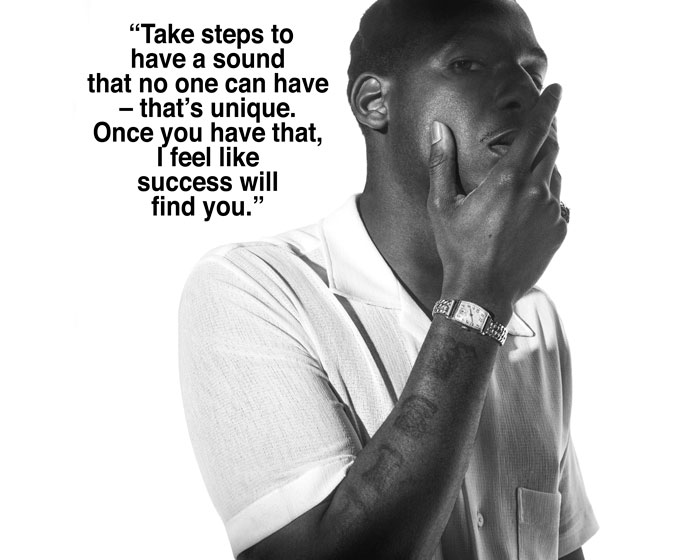
MC: There is a common conception among indie artists that in order to be viable to a major label you have to come with a built-in audience. You met producers at gigs, placed songs on SoundCloud, and were exposed through the blog Gorilla vs. Bear who posted two demos. This garnered instant A&R interest, and your managers set up showcases in Nashville and Fort Worth plus performances at SXSW. So your journey was different.
Bridges: It was. The beautiful thing about Columbia Records is that they allowed me to release an album that was already done. And the A&R’s only input was what would be the song order or the art for the album. It’s been a really great experience. Everything they’ve done is awesome.
MC: The track on Good Thing, called “Bad Bad News,” incorporates a whole different sound. How did it come together?
Bridges: Some of those lyrics started out derivative of a ballad that I wrote and never released. I basically took those lyrics and changed the melody. That’s the beginning. (Sings) “Ain’t got no riches, ain’t got no money...” During this whole process we did some stuff from scratch, but Ricky Reed had this library of really dope instrumentals. This was an instrumental that Nate Mercereau put together. Every single song started out with me flowing over it. For me, it’s easier to write lyrics with the melody and the cadence already laid down.
MC: The instrumentation has those jazz touches and that amazing guitar synth solo.
Bridges: That’s the sound. But “Bad Bad News” is an anthem for breaking past barriers. It comes from a place of when I was in college. At the time, 2012, I was getting started writing songs. I was working on this song about my mom called “Lisa Sawyer.” I remember there was a music professor. I sat down with him and played the song for him and asked him, ‘Do you think I have an opportunity to be successful?’ And he told me. “Nah, you can’t do anything with that.” “Bad Bad News” is a lot of things––it’s almost political in a way, but it comes from that personal story.
MC: You use your personal history in your writing, talking about your mom on “Lisa Sawyer” that became a key track on your debut, Coming Home. In “Georgia to Texas” on Good Thing you describe her as a “504 girl,” which is the New Orleans area code. How much does New Orleans weigh into your heritage?
Bridges: My mother’s side of the family has been in New Orleans since the early 1900s, and my father’s side moved to New Orleans later on. The song “Georgia to Texas” is vignettes of my narrative, speaking of my mother who moved to Atlanta, and then me being born in Atlanta, and going on to talk about relocating to Texas, and my experiences in high school, and losing my virginity to a prostitute in Oklahoma, to finding my love within music.
MC: In writing a song like that––and other songs on Good Thing—would you say was it difficult to be so emotionally naked, working in a room full of songwriters who were relative strangers to you?
Bridges: It was, man. It was really intimidating. We still had a nice flow and rhythm to the process, but it was rough in the beginning, being around these really awesome songwriters and trying to think of inspiration on the spot. When I write I start with an idea and it might take months or even years to finish that song. It’s rough when there are so many possibilities on how you can do a melody or what words are there, or what the concept should be about. I’m glad we could work it out.
MC: While the songs on Good Thing have varying styles, every song seems to flow with the theme and your voice as the through-line. Do you arrange the backing vocals?
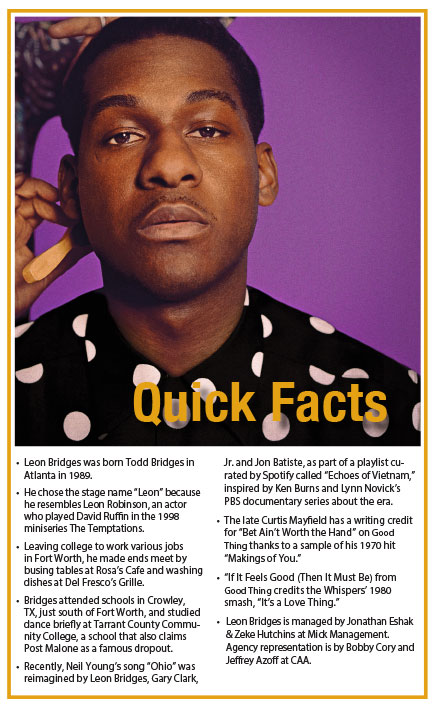 Bridges: I had a couple of ideas on some of the backing stuff, but that was all Ricky. I’m horrible at arranging backup vocals. I just do the lyrics and sing the main melody and my job is done on that.
Bridges: I had a couple of ideas on some of the backing stuff, but that was all Ricky. I’m horrible at arranging backup vocals. I just do the lyrics and sing the main melody and my job is done on that.
MC: You mention “Bad Bad News” as being political. You recreate a very political artist, Gil Scott-Heron, with a cameo in the feature film First Man, Oscar-winning director Damien Chazelle’s biopic of Neil Armstrong starring Ryan Gosling. You perform one of Scott-Heron’s poems “Whitey on the Moon.” Were you aware of him before being cast in the role?
Bridges: Barely. I remember my father introducing me to Gil Scott-Heron, and I thought it was really interesting because he was the origin of what we call hip-hop and I thought that was really cool. Before getting that small role I didn’t know that much about him.
MC: We see you in fashion magazines, looking polished and posed. Do you enjoy this visibility?
Bridges: I think it’s a great extension of myself and the music. The songs are great, so I think it’s important to have dope videos and visual content for the people. I want to continue as I progress to get even more abstract with the visuals. I’ve been able to work with some
awesome directors.
MC: This season you’re in a major Gap ad on television, singing “Now That We Found Love” a song made famous by Heavy D. & The Boys, and originally sung by The O’Jays. You do some steps that definitely reference your
background as a dancer.
Bridges: That Gap ad was a two-day shoot, and during the whole shoot all I heard was “Smile, smile! Give us that Gap smile!” And I hate smiling. But it was a fun time, I got to basically live my dance dreams and learn some choreography. It’s crazy how when I was studying dance it prepared me––learn the choreography in a couple of hours and then go. What I learned then is definitely helpful for what I do now.
MC: What do you say to artists who are coming up from your experience and perspective that can help them?
Bridges: I believe the music never lies. I feel like with any artist, when they take steps to have a sound that no one can have––that’s unique. Once you have that, I feel like success will find you. I look at my story and some of my other friends’ stories. I don’t believe there is a formula to reaching success, hopefully having a manager and getting signed, and you can stop working a 9 to 5. It’s not automatic. Life is in stages. But I’m horrible at giving advice.’’
MC: When you were coming up, how did playing at open mics in Dallas/Fort Worth help your career?
Bridges: When I started out, open mics were a great conduit to putting my music in front of people. If it wasn’t for that I would have never met the producer Austin Jenkins and be doing what I’m doing now.
MC: How do you maintain vocal health?
Bridges: I’m a person who loves to drink. It’s all about doing it in moderation. Maybe try to avoid going to the bars every night and talking loud––that’s how you can wear out your vocals. Before I go on I do a little bit of vocal warmups, and have apple cider vinegar and honey. Then, before I go on stage, a little shot of whiskey.
MC: Is that what gives you that fine falsetto?
Bridges: Falsetto, and little bit of rasp.
Contact [email protected]
Hey singers! Check out MC’s Singers Roundtable with P-Funk legend George Clinton at musicconnection.com/singers-sound-off-2018

